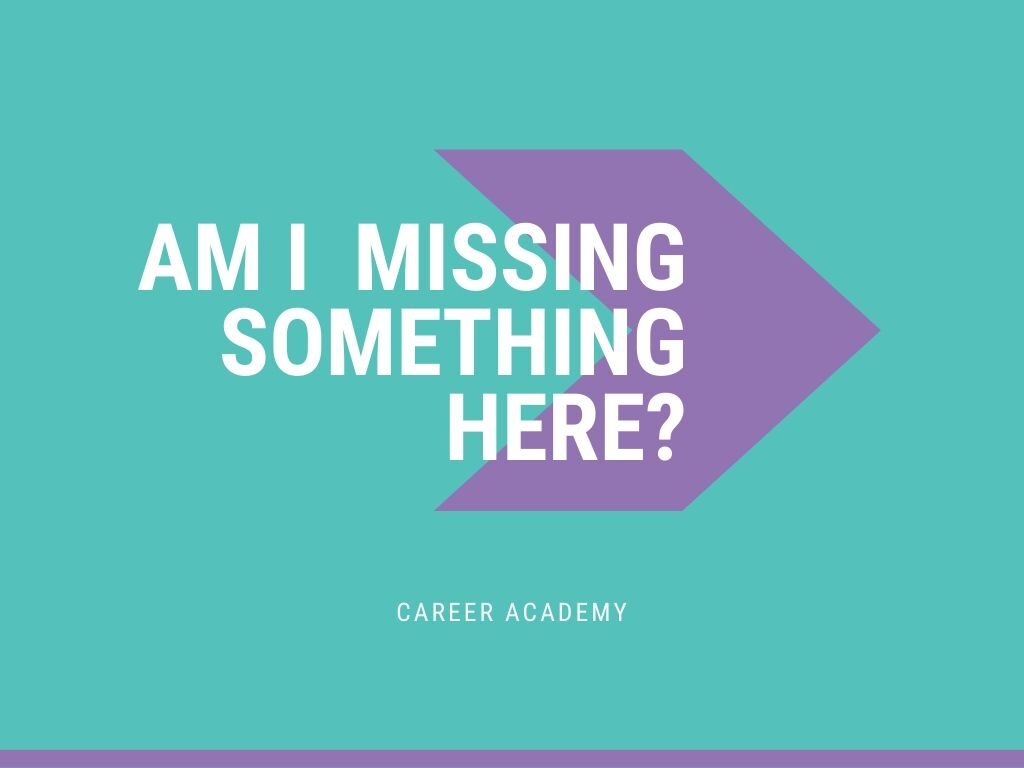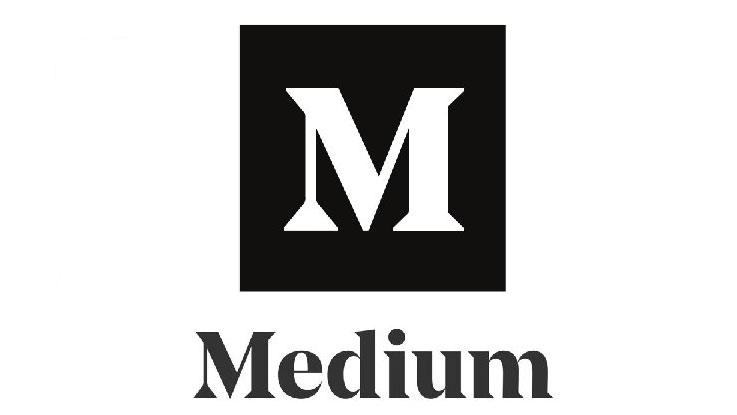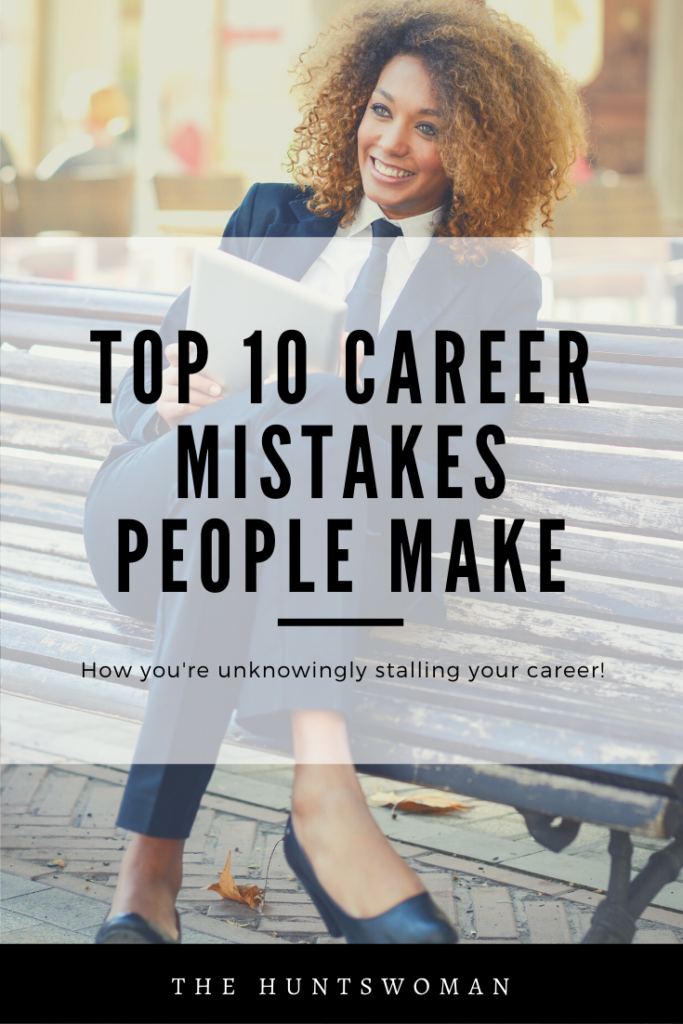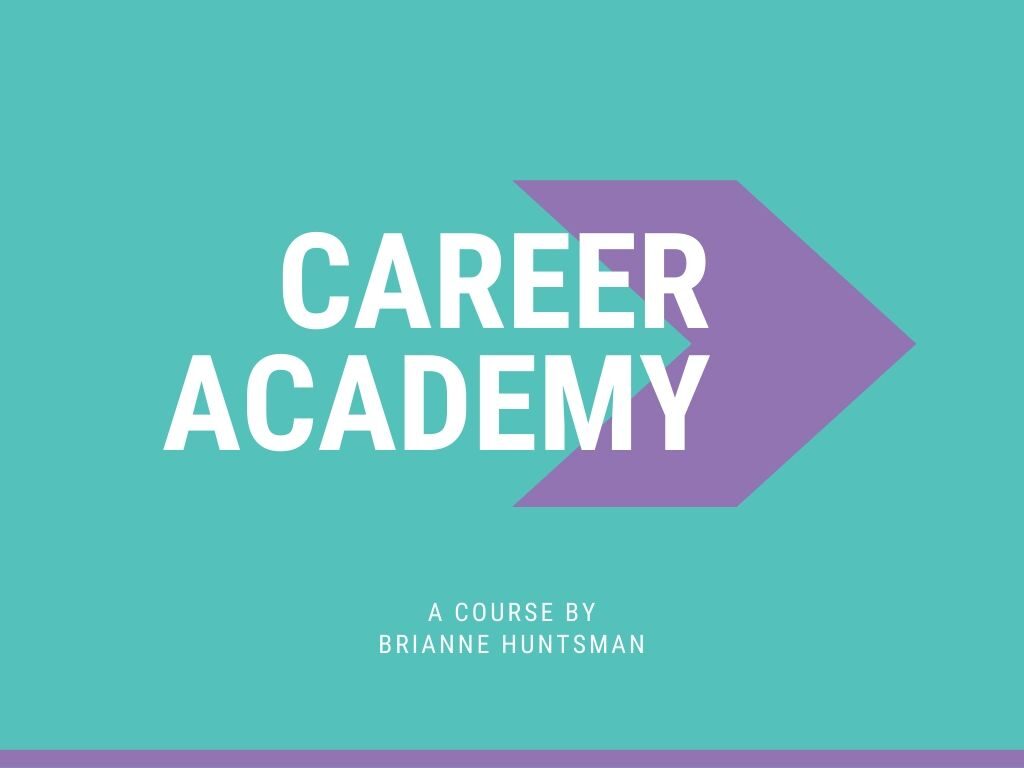Hey there! This post contains affiliate links. Using my links means I earn a commission, which helps me create more rad content. More on affiliates here.
If we’ve been hanging out for a minute, then you know I frequently blog about career development and business stuff – and I even offer services as a career coach!
[I’m also hosting a career development class in January!!]
In my work with my clients, I see a lot of the same kinds of career mistakes and, well, bad ideas. Developing a career can be hard, because the labor is on the individual to figure stuff out – and it’s not always clear where the best and actionable advice is. Most folks know they could be doing more in their career, but they’re not sure what, exactly, to do!
[Heads up! This post uses affiliate links, and you help me earn $$ when you use my links. More on affiliate links here!]
So, let’s get the easy stuff out of the way! Below is a great checklist for 2020 (and beyond!) to help set you up on the right path for planning your career and setting yourself up to get a new job (or be recruited).

A Quick Note: Professional Development is YOUR JOB!
The #1 mistake I see new grads make (and those early in their career), is expecting all training opportunities to come from the company. They expect their employer to ~groom~ them for advancement, and send them to conferences, classes, etc, AND set them up with mentors.
And, while smart companies will do this, a majority do not.

And, it is YOUR job to gain more skills, grow your emotional intelligence, and develop your career. It is not your manager’s job to do all that for you.
It’s yours!
1 Item at a Time
Because figuring out how (and what) to prioritize is tough, I’ve created this list below
This list is long and detailed. I’ve ranked the list by most important (and easiest) first. So read the whole dang thing, and then make a goal to cross one thing off each week – and schedule time in your calendar right now on when you’ll do just that!!
Tip #1: Listen to 30 Minutes of Professional Development a Day
You didn’t come to this planet with the best communication or professional skills possible. Just like you watch YouTube tutorials on how to fold up an ironing board (just me?) you have to find resources for all this career stuff.

I use Audible to download a professional development book I’m into (I recommend starting with The Big Leap or Crucial Conversations), and I listen to it while driving around town. I recommend clients listen to professional development for one leg of their commute.
Why listen? Your commute time is already kind of a sunk cost. You have to commute anyways, so you may as well maximize what you get out of it.
Task: Download a book from Audible, and set a reminder on your electronic calendar to play it during your commute.
Tip #2: Get a Headshot
A good headshot is a lifesaver. Your employer may want to use it on their website, conference organizers want headshots, and you need a headshot for your LinkedIn!

Our brains evolved to remember pictures (not names), so a good headshot can help people remember who you are professionally. I can’t tell you the # of times I’ve been working on a job search and been like, “Let’s interview that person with the red jacket.” And then I scroll through the LinkedIn profiles to find Mx. Red Jacket.
You don’t need to drop lots of money on a headshot (although you can!). You can find a photographer on Groupon, Airbnb Experiences, or a local Facebook Group.
When taking headshots, I recommend that you bring 2 outfits – as clothing shows up differently on camera vs real life. Choose solid colors, and don’t be afraid to be a bit funky if your industry calls for it!
To Do: Get headshot photos taken.

Tip #3: Be a Mentor
Bet you thought I was gonna write, “Find a Mentor” didn’t you? While finding a mentor is important (advice on that here), I’ve found that I have benefitted MUCH more from being a mentor.
Mentoring can take a variety of forms. From doing career presentations at local colleges, to offering a mentor chat to folks on twitter, to taking a summer intern under your wing, etc.

You see, as you set yourself up as a mentor you will gain insight on how to provide criticism, praise, etc – which will be helpful as you grow your career and have direct reports. Mentoring is also a great way to network, because your mentee won’t always be the intern – eventually they’ll be a bomb professional in their own right!
Task: Reach out to HR or a local college and inquire about mentoring interns or speaking to a student group or club that relates to your work.
Tip #4: Career Mapping FTW!
If you’re trying to figure out how to plan your career, you’re not alone! If you’re trying to figure out if you should get more schooling under your belt, you’re not alone!
If you don’t know what the heck you want to do with your life, you’re not alone!
I use a method called “career mapping,” to help clients answer those questions. A Career Map is a rough guide on your career plan, informed by research on other people’s careers and what you enjoy doing. It’s not stressful, and it’s a great exercise to help get clarity and action going.
Task: Read this post to get your career map set up.
Tip #5: The Sky is Falling! (The Pitfalls of Panicking Parents)
This is a bit of a mean one, but it’s true. The job market has changed a LOT in the last decade, and your parents will likely give you advice that isn’t very applicable to the world we’ve inherited.
If your parents take a “The sky is falling! Get a secure job at all costs and don’t switch jobs for 40 years!!!” attitude to work, I would lovingly suggest that you get your career advice elsewhere. We no longer live in an era where you work 40 years at a company, and get a bomb retirement package with a watch when you’re done.

[This may not apply to your parents, and that’s okay!]
To Do: Find 3 industry leaders in your field, who post a good amount about the industry. Follow them on all social media platforms and prioritize their info over panicking parents.
Tip #6: Complete Your LinkedIn
I know, cue a collective groan. You may think that LinkedIn isn’t as fun as TikTok, but it is one of the most powerful tools out there!
Here’s why you need to get on the LinkedIn train: LinkedIn is often used as the place to track and store job applicants. Many companies use recruiting software that hasn’t been updated since 2007, so they rely on LinkedIn to track their favorite candidates.

But if your full resume isn’t on your LinkedIn, it can be really hard to find you!
To Do: Be sure to have all of your roles explained on LinkedIn (doesn’t have to be beautiful), and try to get above 500 connections.
Tip #7: Google Yourself
Perhaps the most overlooked part of professional development for those early in their careers – is “Googleability.”
That’s not a word (yet), but stick with me here.
Hiring managers, mentors, those looking for consultants, conference organizers, etc etc – they all use Google to find people. And if you’re not showing up in search, you may as well not exist. Or, worse, if the only results are news stories from your time on your high school track team – we’ve got work to do!

If you’re not sharing your knowledge somewhere on the internet – or sharing the awesome stuff you’re up to – how will folks know how awesome you are?!?!
Increase your searchability:
- Set up a professional website (it can just be your resume, to start!) on Squarespace!
- Create a Twitter account, and tweet 4-5x per day at conferences or events (example: #SXSW). Having a specific event to tweet about will help you connect with others. More on Twitter further down!
- Blog on Medium
Task: Buy your domain name (your full name, if possible) and set up a professional Squarespace.
Tip #8: Twitter is IT for Professional Networking
Twitter is often thought of as the birthplace of memes (you’re not wrong), but it’s ALSO the birthplace of career building.
Twitter works differently from other social platforms, in that you’re encouraged to talk to people you don’t know IRL! Twitter is like an 18th century salon, full of people sharing opinions – who want to connect with new people!

And, better yet, the people who you want to network with (or mentor you) will likely be much more responsive on Twitter than to emailed requests to “get coffee.” Now, this only works if they’re active on Twitter – but they probably are! I have gotten access to people and mentors through authentic engagement on Twitter that I *NEVER* would’ve seen elsewhere.
Twitter is networking heaven for introverts, because you don’t have to go anywhere!
I could teach a whole class on Twitter networking, but let’s keep it simple for now. Here’s your daily to-do for Twitter:
- Tweet (or retweet) an industry leader or a news article on your industry
- Reply to 2 people. This could be anything from “Cute dog!” to “What impact are you seeing from China + tariffs on the production of dog bowls?”

Boom. You’re on your way to Twitter mastery.
Hot Tip: Twitter is ALSO where:
- People share conference speaking opportunities
- Journalists look for sources (#JournoRequest)
- People share freelance or contract gigs
Task: Do the above system for 2 weeks.
Tip #9: Sharing Your Knowledge on Medium
You know that you know stuff, but does the world know that you know it?
If you’re not blogging, then probably not.
The most easy and friendly way to start setting yourself up as a thought leader is to post blog posts to Medium. Medium is a blogging platform, and it is low commitment. Some people post to Medium weekly, and others post quarterly.

Medium is nice, because you’ll show up in search terms for whatever you’re blogging about, AND you don’t have to worry about keeping a blog alive. (Have you ever googled someone and found their blog that hasn’t been updated since 2013? Not cute.)
But What Should I Write?
Great question! Your assignment is to write about topics in your industry. You’re not sharing groundbreaking journalism or after a Pulitzer. You will likely write about stuff that other folks have written about.
And that’s okay!
Our goal here is to show that YOU know about these topics. You bring a unique perspective. If it seems obvious to you, write it anyways! Write what’s easy! Start building your Google search results!!
Task: Write 1 blog post (minimum 500 words) on Medium.

Tip #10: Set Up a Retirement Account
Y’all, I want to screech this from the rooftops. If you’re paying taxes in the USA, setting up a retirement account can help you reduce your taxable income AND help you prepare for the future.
But you have to get over yourself, and meet with an accountant.
You are (likely) leaving thousands of dollars on the table by avoiding these conversations. At least set up a meeting to learn what your options are! I would recommend (as does Suze Orman) to meet with an advisor who charges an hourly rate, so you get advice with less bias.

One of my fave bloggers (J. Money of Budgets Are Sexy) regularly talks about how he just set up and automates a Vanguard IRA.)
Task: Make an appointment with a financial advisor or accountant to discuss retirement accounts.
BONUS TIP: Pitch to Speak at Conferences & Events
Okay, now that you’ve got your search results building up, you’re mentoring and you’re networking – you’re ready to begin speaking at conferences.

Speaking at conferences is like career dynamite (the good kind), because being onstage allows you to get your name in front of a whole bunch of people! Speaking at conferences builds your brand, and will help you land new jobs, consulting gigs and make more at your current org.
I wrote a whole post on how to pitch conferences here.
(Terrified at the thought of public speaking? Join a panel! You won’t have to talk as much, and you still benefit from your name on the program.)
Phew! Ready to Keep Learning & Earning?
I have designed a whole class filled with knowledge like this, aimed at helping new grads and those early in their career. If you’ve felt like there’s a secret career handbook that others got – and you didn’t – you’ll definitely want to check this class out!

Thanks for Reading!
The best way to stay in touch is to subscribe to The Huntswoman email list! No spam, pinky promise!
[FTC Notice: This post contains affiliate links, meaning I earn a small commission if you purchase a product through my link. Affiliates help me write more great content, and I only endorse products I truly love.]











